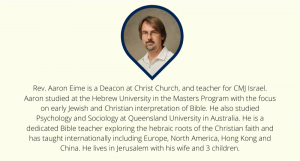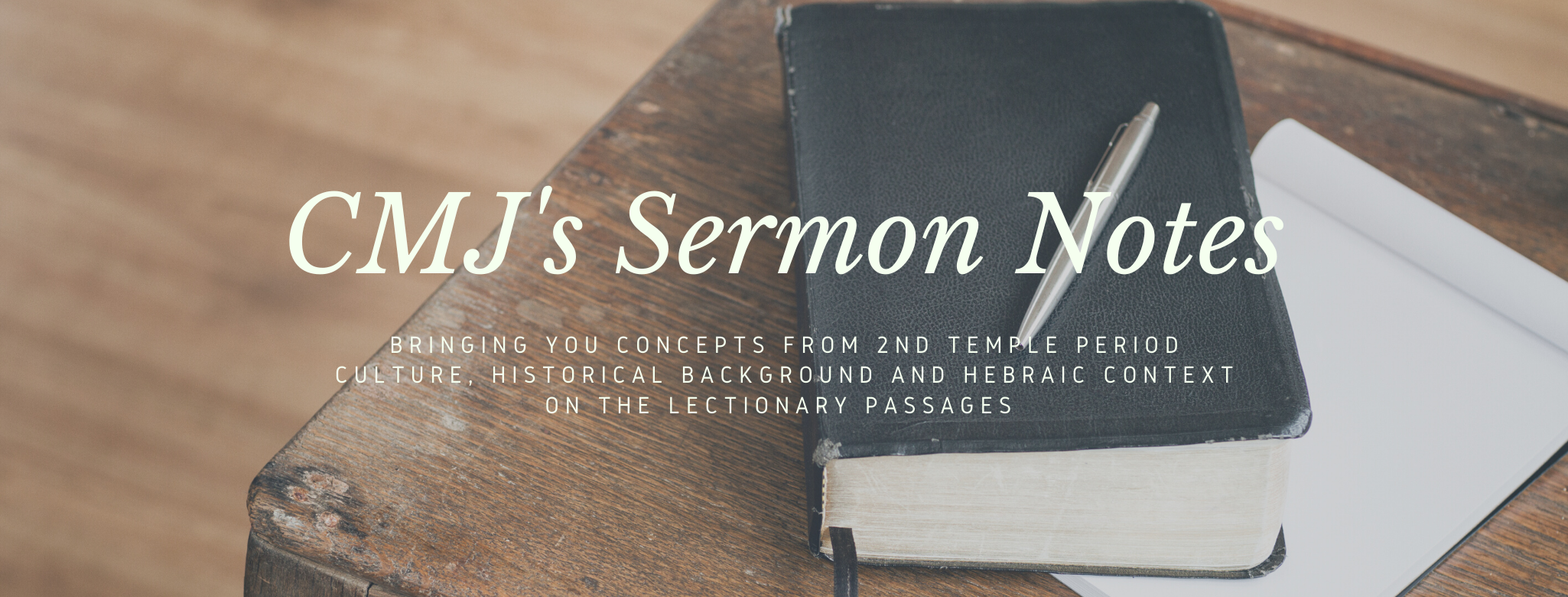2nd Sunday in Advent
Sunday, December 6, 2020
Readings – Isaiah 40:1-11, Psalm 85: 1-2,8-13, 2 Peter 3:8-15, Mark 1:1-8
Introduction – Advent is not a month long shopping spree before Christmas, it’s a time set aside for preparing for the coming of Messiah. Unfortunately our consumer culture has shifted our attention away from the meaning of the season to the expectation of cheap merchandise and good deals. We long to see the sales on Black Friday and Cyber Monday more than we do for a coming redeemer.
Common Theme – This week, we are hearing from the prophets, and from John the Baptist. He is considered one of the greatest of the prophets. Too often prophets are seen as fanatics and right wing fundamentalists which unfortunately blurs their message. The message is about preparation and not trivialization of the seriousness of the Lord’s coming. Given our consumer, culture the message of the prophets is still very much relevant to us today. How do we prepare? Not by shopping, but through the action of repentance!
Hebraic Perspective – Geography and theology are often linked in the Bible. The word ‘Midbar’ in Hebrew means ‘Desert’. The same consonants that form the word ‘Midbar’ מדבר also form the word ‘Medaber’ מדבר which is the Hebrew word for ‘Speak’. There are no vowels in Hebrew thus ‘Midbar’ and ‘Medaber’ appear the same in Hebrew. Further, the root of ‘Midbar’ מדבר is ‘Davar’ דבר which is the word for ‘Word’ and actually creates the verb ‘To Speak’. This completes the picture quite nicely. Where does God speak? He speaks in the desert. The desert is a place free from distractions, a place free from the idolatry so often prominent in cities. In the quiet of the desert we hear God’s voice. And so, God sends all His heroes to the desert. Moses goes to the desert, Elijah spends time in the desert, David escapes from Saul there, Israel wanders through the wilderness and even Jesus is driven by the Spirit into the desert. It’s an important reminder for us to find that quiet place and to let God speak and work in their lives.
Reading #1; Isaiah 40:1-11 – This passage of Isaiah is quoted in all 4 Gospels as the writers declare John the Baptist to be the voice in the wilderness. However, the Gospel writers are not the only 1st century Jewish people to use this passage. Around 150 years prior to Jesus, a group of priests broke off from the Temple in Jerusalem and went to the desert around Qumran. They committed themselves to the study of Scripture and to the preparation for the Messiah. Why did they choose to leave to the desert? In Hebrew, there are no punctuation marks such as comas. So a better reading of this text reads; ‘In the wilderness prepare the way of the Lord’. Where do we prepare for the redeemer? In the wilderness!
Reading #2; Psalm 85:1-2, 8-13 – The psalm is a psalm of the sons of Korah in which the land and the people are paired together. God will show favour to the land of Israel while restoring the people through the forgiveness of sins. The psalm sends a message of hope, that for the peple, salvation is near, and that God will come and dwell in the land. With the Lord’s presence in the land, love and faithfulness meet with faithfulness even springing from the earth as concurrently righteousness descending from heaven. The psalm concludes with an exhortation to preparation. In this case, it is righteousness that descends from heaven, and prepares the way for the Lord.
Reading #3; 2 Peter 3:8-15 – ‘With the Lord a day is like a thousand years’. The point of this quotation from Psalm 90:4 is to highlight that God is outside of time, God’s time is unlike the reckoning of human time. God is providing enough time for the nations to come to repentance. Thus what appears as a delay in time for the return of the Lord, is in actually an act of love. Then without explanation, Peter declares that adhering to a lifestyle of holiness can actually hasten the return of the Lord (verses 11-12). In Jewish thought, repentance hastens the coming messianic age. Peter presents classic Jewish tension. God delays His return, as verse 10 declares it to be a day of wrath, fire and destruction, coming as a thief unbidden, yet at the same time it seems there are implications that the body of Messiah can hasten His coming, through repentance.
Reading #4; Mark 1:1-8 – John, like the prophets before him, comes to prepare the way. He does so in the wilderness, the place of messianic expectation. The other place of great messianic expectation was the Temple. Messiah was going to suddenly appear there too. As it is written in Malachi 3:1 ‘The Lord, whom you seek, shall suddenly come to His Temple’. John’s message was not one of prediction but rather one of warning. The call to prepare held an element of warning. The way that you prepare for the Messiah is to repent. The baptism preached by John was not a baptism for individual sin but rather a national message of expectation which involved a national repentance. Hence Jesus as a member of the Israelite nation undertakes this baptism and joins in the national repentance. His was not a baptism for personal sin. John’s message was quite popular and creates a sense of corporate expectation among the people.
Hebrew Context – John makes a powerful proclamation, the coming one will baptize in the Holy Spirit. In our gentile culture we have come to understand baptism as a one time event. Whether it is a sprinkling as an infant or a dunking as an adult, baptisms tend to be a once in a life time occurrence. However, what did the Jewish listener to John the Baptist hear and understand when they heard of a baptism in the Holy Spirit? Baptism in the Jewish culture is understood as an immersion in a mikveh, which is essentially a pool of living water, that is the water is not stagnant but flowing. There were various types of ‘Baptisms’ during the 2nd Temple period. These included regular baptisms for ritual cleanliness, sometimes on a daily basis. All worshippers (including Jesus) who wished to enter the Temple would undergo a mikveh before entering. Important to note that most baptisms, that is immersions into the mikveh, were not one time events. To be baptized in the Holy Spirit meant to be fully immersed and saturated in the Spirit. It was also something that could occur regularly and not to be limited to a one time event.
About the Author


